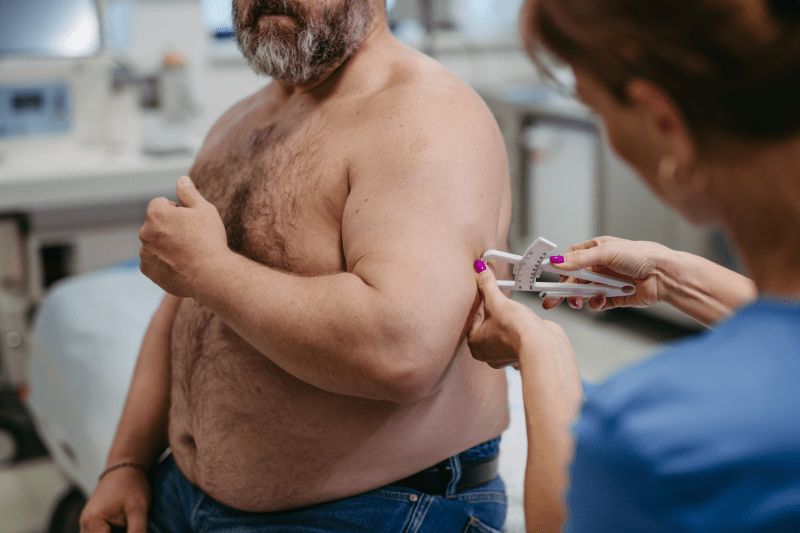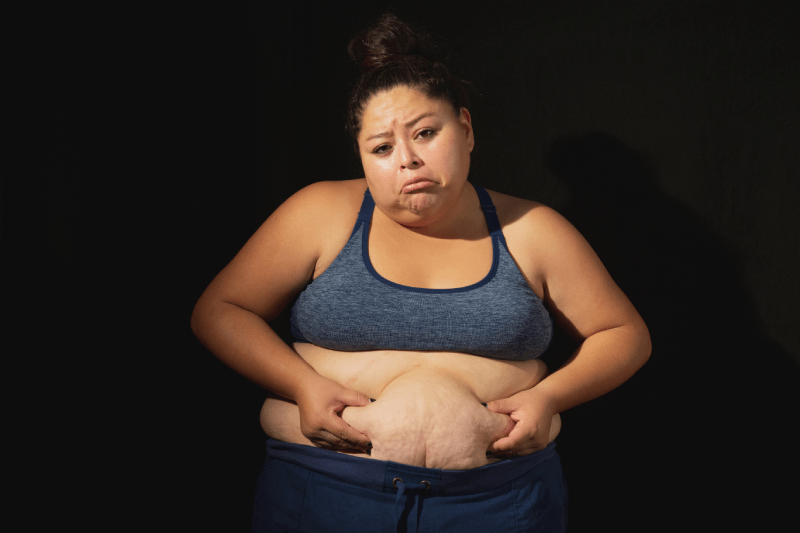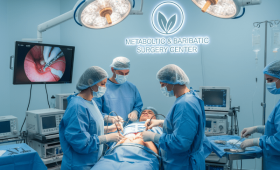Obesity is a global public health problem that is steadily increasing and carrying significant health risks worldwide. When diet and exercise prove insufficient, Gastric Bypass (Roux-en-Y) surgery offers a permanent and effective solution that can radically change patients’ quality of life.
However, when making this crucial decision, the cost and quality of the operation vary greatly depending on the country chosen. Is the highly prosperous German city of Cologne the right choice, or is Turkey, a country that has pioneered medical tourism by combining its expertise with affordable costs, the better alternative? In this comprehensive guide, we will delve into the details of these two destinations concerning cost, surgical experience, and post-treatment support, helping you make the most rational decision for your Gastric Bypass journey.
What is Gastric Bypass Surgery and How Does It Work?
Gastric Bypass (Roux-en-Y) is widely regarded as one of the gold standards in bariatric surgery, providing a time-tested method for significant weight loss. During this operation, a small upper pouch is created from the stomach, and a segment of the small intestine is connected to this new pouch. This procedure relies on two fundamental mechanisms:
Restriction, which allows the patient to consume less food due to the reduced size of the stomach pouch, and Malabsorption, where nutrients follow a shorter path in the intestine, leading to reduced calorie and nutrient absorption. Both effects work powerfully together to ensure strong and long-lasting weight loss outcomes.

What Are the Differences Between Sleeve Gastrectomy and Gastric Bypass?
Gastric Bypass and Sleeve Gastrectomy (or “Tube Stomach”) are the two most common bariatric procedures, but their methodologies differ significantly. Sleeve Gastrectomy focuses solely on restriction by removing about 80% of the stomach, which also decreases the secretion of Ghrelin, the hunger hormone. Gastric Bypass, conversely, incorporates both restriction and malabsorption, making it a more aggressive and often more effective tool for significant weight loss. For patients with a higher Body Mass Index (BMI) or those struggling with severe reflux or uncontrolled diabetes, Gastric Bypass is frequently the preferred choice, offering better resolution of metabolic issues due to its dual mechanism.
Who is Suitable for Gastric Bypass Surgery?
Gastric Bypass is generally recommended for individuals who have a Body Mass Index (BMI) of 40 or higher, or those with a BMI between 35 and 39.9 who also suffer from serious obesity-related co-morbidities, such as Type 2 Diabetes, severe sleep apnea, or high blood pressure. Crucially, the most important criterion for surgery is the patient’s unwavering commitment to adopting the necessary post-operative lifestyle changes, including adherence to a new diet and a regular exercise regimen for the rest of their lives. Comprehensive evaluations, including psychological assessments and endocrinological check-ups, are also an integral part of determining a patient’s suitability for this life-altering procedure.
What Preparations are Necessary Before Surgery?
The preparation process preceding Gastric Bypass surgery is extensive and requires careful management by a specialized, multidisciplinary team. This essential team typically consists of a bariatric surgeon, a dedicated dietitian, a psychologist, and, when necessary, specialists like a cardiologist or endocrinologist. Before the procedure can take place, a full range of necessary tests must be completed, including blood analyses, endoscopy, and ultrasound scans. Furthermore, the patient is often required to begin a special liquid diet several weeks before the scheduled surgery date. This pre-operative diet is crucial as it helps to shrink the liver, thereby making the operation safer and significantly easier for the surgeon to perform.
When Are the Results of Gastric Bypass Visible?
Gastric Bypass surgery is known for delivering rapid and sustained weight loss results, although patience is required for the full transformation to manifest. Patients typically lose a substantial proportion of their excess weight within the first six months following the procedure.
The most dramatic phase of weight loss usually occurs within the first post-operative year, with patients expected to lose, on average, between 60% and 80% of their total excess weight. The overall weight loss process begins to stabilize and plateau roughly between 18 and 24 months after the surgery. It is imperative to understand that the long-term success and ultimate outcome of this period are directly dependent on how diligently the patient adheres to the recommended lifestyle modifications.
Why is Obesity Surgery Popular in Medical Tourism?
The popularity of obesity surgery within the realm of medical tourism is primarily driven by its high global demand, its capacity to deliver life-changing outcomes, and the exceptionally high costs associated with such procedures in Western countries.
Nations like Turkey have successfully transformed this challenge into an opportunity, becoming global hubs by offering high-volume operational experience, the latest technological advancements, and a significant currency exchange rate advantage. Consequently, patients are motivated to travel abroad, seeking to achieve both a high standard of medical care and substantial financial savings. These combined factors create a compelling value proposition that attracts patients from all over the world.
What Are the Potential Risks and Complications of the Surgery?
As with any major surgical procedure, Gastric Bypass carries a degree of potential risks and complications that patients must be aware of and discuss thoroughly with their medical team. Short-term risks include issues such as bleeding, infection at the surgical site, adverse reactions to anesthesia, and, though rare, an anastomotic leak (a leak at the suture line).
Long-term risks, which require lifelong monitoring, involve nutritional deficiencies, particularly a lack of Vitamin B12, iron, and calcium, as well as the potential for ulcers and the occurrence of Dumping Syndrome (discomfort caused by the rapid transit of sugar into the small intestine). The overall risk profile is positively correlated with the surgeon’s experience and the quality of post-operative care provided.
When is Revision Bariatric Surgery Necessary?
Revision bariatric surgery becomes necessary when a patient’s previous weight loss operation, such as a Sleeve Gastrectomy or an older-style gastric band procedure, either fails to achieve sufficient weight loss or leads to severe, unresolved complications. Gastric Bypass is frequently offered as a revisionary option for patients who did not achieve adequate results following their initial Sleeve Gastrectomy.
It is vital to understand that these types of revision operations are often more complex and technically challenging than the primary surgery, which consequently demands an even greater level of specialized surgical expertise and experience from the medical team performing the procedure.
What Should Long-Term Nutrition Look Like After Gastric Bypass?
Post-Gastric Bypass nutrition forms the cornerstone of permanent and sustainable lifestyle change, requiring strict adherence for the best outcomes. For the rest of their lives, patients must consume meals in very small portions, eat slowly, and make protein their absolute dietary priority to support muscle maintenance and satiety.
Crucially, to prevent all potential nutrient deficiencies, the regular intake of essential supplements such as iron, Vitamin B12, calcium, and Vitamin D is absolutely vital and non-negotiable. This meticulous new nutritional regime is carefully planned, monitored, and adjusted over time by both the surgeon and the dedicated dietitian to ensure long-term health and success.
How Does Quality of Life Change After a Successful Surgery?
A successful Gastric Bypass surgery yields a dramatic improvement in the patient’s quality of life that extends far beyond mere weight loss. Obesity-related co-morbidities, which significantly impact daily living—such as Type 2 Diabetes, Hypertension, and Sleep Apnea—are either resolved completely or show significant, life-altering improvements within the first year.
Patients commonly report feeling much more active, energetic, and socially confident due to their improved physical appearance and health status. This profound transformation is not just a physical recovery; it is coupled with a deep psychological healing process that restores confidence, mobility, and overall well-being.

What is the Status of Obesity Surgery Costs in Germany?
Germany is renowned globally for its exceptionally high standards of living and the exemplary quality of its medical services, which are widely respected across Europe and beyond. However, this superior quality often translates into considerably high costs, especially for elective surgical procedures like bariatric surgery, which are not always covered by insurance. When comparing the expense of a complex procedure like Gastric Bypass in Germany to the competitive prices offered in medical tourism hubs like Turkey, the cost difference becomes strikingly evident. The inherent high cost structure in Germany places the total expense at a much higher echelon.
What is the Average Price of Gastric Bypass Surgery in Cologne?
Cologne, as one of Germany’s major and most developed cities, reflects the nation’s high pricing structure in its medical services. The average cost for a Gastric Bypass (Roux-en-Y) operation in Cologne typically fluctuates between 15,000 Euros and 25,000 Euros. This wide price range is dependent on critical factors such as the prestige and location of the hospital, the specific experience level of the operating surgeon, and the individual needs of the patient’s medical case. Critically, these quoted prices usually cover only the surgical procedure itself and may often exclude comprehensive pre-operative and post-operative package services, leaving the patient with many out-of-pocket costs.
What Are the Reasons for the High Costs of Surgery in Germany?
The high expenditure associated with surgical costs in Germany, particularly for complex procedures, is rooted in several interconnected economic factors. Paramount among these are the very high salaries and extensive social security contributions required for surgeons and medical staff, significant operating room overhead expenses, and the elevated cost of cutting-edge medical devices and consumables. Furthermore, high rates of taxation and insurance premiums also substantially contribute to the final price reflected to the patient. Lastly, high labor costs in healthcare and the charges for extended hospital stays further escalate the overall cost, making the German option financially demanding.
Does German Health Insurance Cover Gastric Bypass?
It is certainly possible for Gastric Bypass surgery to be covered by national health insurance (Krankenkasse) in Germany, yet it is by no means an easy or guaranteed process. To achieve insurance coverage, the patient is typically required to provide detailed documentation proving their attempts at weight loss (dieting, exercise regimens) over a period of at least 5 years. They must also successfully pass a series of mandatory psychological and comprehensive medical evaluations, in addition to being certified as having a BMI above a specific threshold. This long, arduous process is often fraught with months of challenging bureaucratic hurdles and delays, creating a significant barrier to timely treatment.
What is the Quality and Accreditation of Hospitals in Cologne?
Hospitals situated in Cologne are mandated to adhere to the European Union’s extremely stringent medical standards and hygiene regulations, ensuring a high level of safety and operational quality. Both university hospitals and specialized private bariatric centers deliver a premium level of service that is recognized internationally. While these institutions commonly hold national certifications (such as TÜV) and often possess esteemed international accreditations (like JCI), this assurance of quality comes packaged with a very significant and restrictive price tag. Therefore, while the quality of care is undeniably high, the option is typically not considered cost-effective for medical tourists.
Are Waiting Times for Obesity Surgery in Germany Long?
Waiting periods for obesity surgery within Germany can be quite extended, particularly for patients who are relying on insurance approval to proceed with their operation. The complex and layered medical evaluation process combined with the necessary insurance authorization can easily take several months to complete. Furthermore, securing an appointment with highly sought-after and specialized bariatric surgeons may necessitate additional significant waiting periods due to their busy schedules. This prolonged timeline poses a considerable disadvantage for patients who require urgent medical intervention or who are keen to begin their transformative treatment journey quickly, unlike the streamlined processes found in medical tourism.
What is the Pre-Operative Evaluation Process Like in Cologne?
The pre-operative evaluation process in Cologne is rigorous, meticulous, and typically spans an extensive period of time, designed to ensure patient safety and insurance compliance. The patient is required to consult with a series of specialists, including the surgeon, a dietitian, a psychologist, and an internist/endocrinologist. This multi-stage assessment process also serves the vital function of preparing all the necessary bureaucratic documentation required for insurance authorization. While crucial for safety, this lengthy and demanding bureaucratic process can be quite taxing on the patient’s time, emotional energy, and resources, requiring multiple appointments and extensive record-keeping.
Post-Operative Follow-up and Rehabilitation Costs in Germany
Post-operative follow-up and rehabilitation programs in Germany generally operate at a very high standard of medical care, focusing on long-term patient success. However, patients in private hospitals should anticipate being charged additional fees for every subsequent follow-up visit, necessary lab test, and consultation with the dietitian, especially if these services are not explicitly included in the initial surgical fee. If the national health insurance fails to cover these subsequent expenses, the accumulated cost of long-term follow-up can significantly inflate the total budgetary outlay, making the overall experience financially unpredictable and stressful for the patient.
How Do Travel and Accommodation Costs Affect the Budget for Cologne?
Cologne is widely known as an expensive Western European city, and this economic reality severely impacts the cost of travel and stay for medical tourists. The expenses associated with accommodating the patient and any accompanying companion for the several days required for the surgery and initial recovery, including high costs for meals, local transportation, and hotel stays in central areas, are considerable. The patient must independently manage and bear the entire financial and logistical burden of these associated costs. This financial load, when added to the already high surgical fee, significantly inflates the total treatment budget, contrasting sharply with all-inclusive package deals.
The Volume of Gastric Bypass Experience of German Surgeons
While German surgeons are exceptionally well-educated and highly trained professionals, the sheer volume of Gastric Bypass operations they perform tends to be lower when compared directly to the high-volume bariatric centers prevalent in Turkey. Due to the extended duration of insurance approval and regulatory processes in Germany, German surgeons may not perform operations as frequently or in the high numbers as their Turkish counterparts. In the field of surgery, a high volume of experience is universally regarded as a critical factor that directly contributes to lower complication rates and improved surgical outcomes.
Are Medical Tourism Packages Common in Germany?
Hospitals in Cologne, and Germany in general, are not typically accustomed to offering the kind of comprehensive “all-inclusive” medical tourism packages that have become the standard offering in Turkey. German facilities usually only itemize and price the medical service itself. As a result, the patient is expected to take full responsibility for organizing all logistical details, such as hotel accommodation, airport transfers, and interpreter services, and bear these costs separately. This fragmented approach complicates the overall experience for patients traveling internationally, contrasting sharply with the streamlined ease of Turkish packages.

The Language Barrier and Need for Interpretation in Cologne
Although hospital staff in Cologne generally possess proficiency in English, effective and accurate communication in a medical context, especially regarding complex surgical details and precise post-operative instructions, is paramount. For non-German speakers, there is a risk of a communication breakdown or misunderstanding, which can jeopardize recovery. Interpreter services are typically not provided as a standard inclusion in German packages, forcing the patient to either find a translator at their own expense or risk communication difficulties. In stark contrast, this essential service is consistently included as an integral part of nearly all medical tourism packages offered in Turkey.
Procedures in Germany for Post-Surgical Complications
Should a post-operative complication occur, the German medical system provides an extremely high level of emergency support and follow-up care, ensuring patient safety. However, for international patients who do not possess German national insurance, the costs associated with this additional emergency treatment can escalate to staggeringly high figures. The lack of a clear, pre-negotiated financial guarantee regarding the coverage of these unexpected extra expenses constitutes a very significant financial risk for the patient, a risk that is often mitigated by specialized medical tourism packages.
The Impact of Eurozone Pricing on Surgery
As Germany is situated within the Eurozone, the cost of medical services and surgical procedures is naturally high, driven by the strong purchasing power of the Euro and the general economic stability of the region. This robust economic environment fundamentally eliminates the currency exchange rate advantage that makes operations in Turkey so much more affordable. Consequently, even when priced in Euros, procedures in Turkey remain substantially more cost-effective, effectively nullifying the financial competitiveness of the German option for cost-conscious international patients.
Reviews of Patients Who Had Gastric Bypass Surgery in Cologne
Reviews and testimonials from patients who have undergone Gastric Bypass surgery in Cologne generally indicate satisfaction with the medical quality and technical proficiency of the procedure performed. However, complaints regarding the exceptionally high cost and the stressful complexity of the bureaucratic process are consistently prevalent in patient feedback. Patients frequently express significant frustration and disappointment concerning the prolonged duration of the insurance approval stages and the prohibitively high out-of-pocket expenses resulting from the German pricing model, highlighting the non-financial difficulties of choosing the local option.
Why is Turkey Considered the World Leader in Bariatric Surgery?
Turkey has earned its distinguished status as a world leader in bariatric surgery, including Gastric Bypass, primarily due to its remarkable volume of surgical experience. Turkish surgeons perform a far greater number of operations annually compared to their counterparts in most Western countries, which has allowed them to acquire an unparalleled level of mastery and skill in this specific field. This accumulated, high-volume experience, combined with the significant advantage of lower costs, solidifies Turkey’s position as the number one destination for international bariatric patients seeking expertise and affordability.
What is the Cost Advantage of Gastric Bypass with Cure Holiday?
Opting for Gastric Bypass surgery in Turkey with Cure Holiday can result in a massive cost saving, often amounting to 70% to 80% less than the equivalent medical expenses in Cologne. While a patient would face a charge of 15,000-25,000 Euros in Cologne for the procedure alone, Cure Holiday in Turkey typically offers comprehensive, all-inclusive, fixed-price packages ranging generally from 4,000 Euros to 7,000 Euros. This extensive package not only covers the complex surgery but also includes all the necessary logistics and meticulous post-operative care services, making high-quality surgery exceptionally accessible.
Cost Comparison: Germany vs. Turkey Price Differences
The pricing structure reveals a stark contrast between the two destinations: in Germany (Cologne), the primary cost typically covers only the bare surgical service itself. In contrast, the prices offered by Cure Holiday in Turkey are packaged to generally encompass the surgery, luxurious 4-5 star hotel accommodation, all VIP transfers, the essential hospital stay charges, a full range of pre-operative medical tests, and critically, a full year of dedicated follow-up with a dietitian. This all-encompassing pricing model ensures both financial transparency and total predictability for the patient’s entire budget, eliminating the risk of unexpected and stressful hidden fees.
What Services Are Included in Cure Holiday Packages? (All-Inclusive Approach)
Cure Holiday meticulously provides fully comprehensive packages designed specifically to ensure that patients can focus exclusively on their recovery and not be burdened by logistics. The core services included in these packages are: 1. The Surgery itself, covering either Gastric Bypass or Sleeve Gastrectomy, typically guaranteeing maximum graft implantation. 2. Accommodation, including a comfortable 3-4 night stay in a high-quality luxury hotel. 3. Transfers, featuring VIP vehicle transfers between the airport, hotel, and the hospital. 4. Medical Tests, covering all mandatory pre-operative blood and imaging diagnostics. 5. Interpreter services, providing a personal interpreter for clear communication. 6. Post-operative care, including all required medications, vitamin supplements, and care products.
The International Experience of Surgeons in Turkey
The surgeons who collaborate with Cure Holiday are not only renowned within Turkey but are also internationally recognized experts who have successfully performed thousands of complex bariatric operations. These highly experienced professionals possess unique proficiency in utilizing the most up-to-date surgical techniques and managing even the most complex or challenging cases with confidence. This vast, high-volume experience is a direct factor contributing to lower complication rates and significantly improved patient outcomes, providing a level of surgical certainty that is hard to match in lower-volume Western clinics.

The Level of Technology Offered in Cure Holiday Hospitals
Cure Holiday’s partner hospitals are committed to utilizing the absolute latest in laparoscopic surgical equipment and the most advanced medical technology available globally. The sterilization and general hygiene standards within these facilities are rigorously guaranteed by prestigious international accreditations, such as the JCI (Joint Commission International) or ISO certifications, which underscore their commitment to global quality benchmarks. Consequently, patients receive the benefit of cutting-edge medical technology and safety protocols, all while enjoying the substantial cost advantage that Turkey provides, proving that affordability and high standards can coexist.
Comprehensive Pre- and Post-Operative Care in Turkey
Cure Holiday provides a seamless and comprehensive care process that encompasses both the pre-operative and post-operative phases of the patient journey. All necessary pre-operative evaluations and diagnostic tests are performed quickly and efficiently at a single, centralized facility, minimizing patient inconvenience and delays. Following the surgery, the patient is ensured a comfortable initial recovery period by staying in a dedicated, luxurious hotel environment. This organized and continuous flow of care is instrumental in maximizing the success of the operation and providing the patient with peace of mind throughout the most critical healing stages.
Cure Holiday’s VIP Transfer and Accommodation Privileges
In stark contrast to the logistical burden of having to manage your own arrangements in Cologne, Cure Holiday offers patients a completely stress-free travel experience from the moment they arrive. Private, dedicated VIP vehicles are arranged for all necessary transfers between the airport, the hotel, and the hospital, ensuring privacy and comfort. The selection of luxury hotel accommodation guarantees that the patient can rest and begin their recovery in a comfortable and tranquil setting, both before and immediately after the surgery. This highly personalized VIP approach effectively eliminates all the tiresome logistical responsibilities from the patient’s shoulders.
The Process of Dietitian Support After Surgery in Turkey
Long-term follow-up is universally recognized as the central key to the sustained success of a Gastric Bypass procedure. Cure Holiday’s packages often include dedicated, long-term support from a dietitian and coordinator for up to one full year following the surgery, delivered via remote consultations or in-person visits. This extended period of dedicated support is absolutely essential for helping patients to permanently adapt to their fundamentally new nutritional regime and for successfully meeting their long-term weight loss and health goals. It ensures that the patient is never alone during the most critical adjustment period.
What International Accreditations Do Turkish Clinics Have?
The clinics that are partnered with Cure Holiday commonly possess esteemed international accreditations, such as the JCI (Joint Commission International) or ISO certifications, which serve as concrete proof of their adherence to global standards for patient safety and quality of care. These globally recognized accreditations are crucial as they emphatically demonstrate that the procedures, operational protocols, and hygiene standards within the clinic meet the highest possible international levels. This robust system provides international patients with a high degree of confidence and assurance regarding the quality of the medical services they receive in Turkey.
Language Support: Guaranteed Seamless Communication with Cure Holiday
Cure Holiday provides a strong guarantee of seamless communication by assigning personal interpreters to accompany the patient throughout the entire surgical process, from the initial consultation to discharge. These dedicated interpreters play a crucial role by ensuring that all communication between the surgeon and the patient is completely error-free and accurate. This guarantees that the patient fully understands every medical instruction, all post-operative care advice, and that their concerns are correctly relayed and addressed. This essential service acts as a significant source of comfort and trust for patients traveling from abroad.
Medical Tourism Experience in Turkey: Treatment and Holiday
Undergoing Gastric Bypass surgery in Turkey offers a unique opportunity to transform a necessary medical procedure into a pleasantly enjoyable experience. Patients have the option to spend the initial phases of their recovery process relaxing in their comfortable hotel, while also being able to explore the rich historical atmosphere of cities like Istanbul or the peaceful, tranquil shores of the Mediterranean. This dual benefit provides a chance to significantly alleviate the psychological stress and burden associated with the treatment, merging medical necessity with a restorative and enjoyable short holiday experience.
How Does the Fast Appointment and Treatment Initiation Process Work?
In sharp contrast to the extended waiting times required for insurance approval and scheduling in Germany, the process of initiating treatment with Cure Holiday is remarkably fast and efficiently streamlined. The patient’s preliminary assessment is conducted quickly, and the entire travel and surgical planning process can be finalized and completed within a very short timeframe. This speed and efficiency are vitally important for patients whose medical conditions may necessitate prompt intervention or who simply do not want to endure lengthy delays, offering a swift and decisive start to their weight loss journey.
How Does the Long-Term Post-Operative Follow-up System Work?
Cure Holiday’s robust long-term follow-up system diligently monitors the patients’ weight loss progress and essential nutritional supplementation over the most critical period, typically the first year following the surgery. Dedicated coordinators and experienced dietitians continuously oversee the patients’ nutritional adherence and psychological adaptation through scheduled monthly check-ups and online consultation services. This crucial, ongoing oversight ensures that patients maintain compliance with their new lifestyle requirements and are actively supported in achieving their health and weight loss goals in a sustainable manner, minimizing the risk of long-term failure.
Ease of Travel to Turkey and Visa Advantages
Turkey stands out as an easily accessible global hub, offering visa-free or straightforward visa-on-arrival entry for citizens from a wide range of countries across the world. Furthermore, major cities like Istanbul function as enormous international transfer centers, boasting numerous direct flight options from Europe, Asia, and Africa. This ease of travel significantly reduces the logistical complexity and financial burden compared to traveling to Cologne. The convenience of extensive flight connections and simplified visa processes offers a far less complicated and less stressful option for the international patient.
Successful Weight Loss Stories with Cure Holiday
The Cure Holiday websites and social media platforms are richly populated with the success stories and personal testimonials of thousands of patients whose lives have been positively transformed following their Gastric Bypass surgery. This abundance of concrete evidence and authentic patient experiences serves to significantly boost the confidence of prospective patients, providing them with a clear, realistic understanding of the expected results and the quality of care provided by Cure Holiday’s surgical teams. These verifiable testimonials make the decision-making process much easier and more trustworthy for new patients.

Cure Holiday: How to Save Money Without Sacrificing Quality?
The massive financial savings achieved by choosing Turkey over Germany do not, in any way, equate to a sacrifice in the quality of the medical care received. Instead, this cost efficiency is the direct result of combining the country’s lower operational costs, the significant high-volume surgical expertise, and the favorable currency exchange rate advantage. Cure Holiday is adept at leveraging these economic factors to offer the same, or often superior, level of technology and surgical specialization found in its German equivalent, but at a vastly more accessible and affordable price point for international patients.
Why Should You Choose Cure Holiday for Your Gastric Bypass Journey?
Gastric Bypass represents a life-altering investment in your future health and well-being. While Cologne certainly provides high standards, its high price point and logistical difficulties make it a prohibitive option for many. In contrast, by choosing Cure Holiday in Turkey, you gain access to an unbeatable combination of financial advantage, immense surgical experience, and a fully comprehensive, all-inclusive support package. With transparent pricing, luxurious comfort, internationally experienced surgeons, and up to a year of essential long-term follow-up care, Cure Holiday is definitively the most rational and correct choice for beginning your Gastric Bypass journey in a stress-free, reliable, and cost-effective manner. Cure Holiday provides not just an operation, but the pathway to your new and healthy life.



